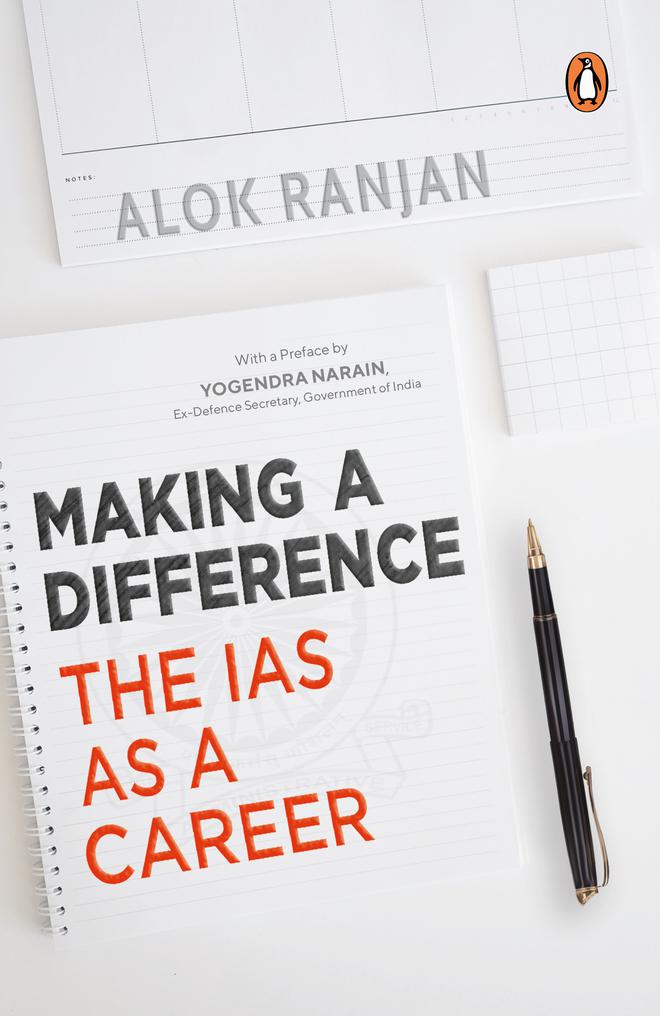


When he joined the Indian Administrative Service in 1978, Alok Ranjan was allotted to the Uttar Pradesh cadre and served in various assignments in the State government as well as at the Centre. He retired in 2016 as Chief Secretary of U.P. His new book, Making a Difference: The IAS as a Career, provides an insider’s view about the IAS, starting with the daunting exam. An edited excerpt:
In the seventies, when I wrote the IAS exam, it was the cherished dream of almost every young boy and girl. Career options were not as plentiful as they are today and the IAS was what everyone aspired for. It was an obsessive desire not only of the candidate but parents, relatives, neighbours and the community. So all-pervasive was this fascination for the IAS that taking the exam was akin to a national hobby. Irrespective of academic ability or talent, every young person tried their hand at the IAS exam. Success in the exam meant sudden alleviation to the top-most level in society and failure meant frustration and sadness. Today things may be different with multiple career avenues and different definitions of success but it still remains the dream for countless youth. In U.P., Bihar and Odisha, which are economically backward, this fascination for the IAS is very intense.
A question people often ask me is when should a person start preparing for the IAS? There is no doubt that it is one of the toughest exams in the country, having a large number of written papers and personality test. Several lakh aspirants vie for the coveted hundred-odd vacancies in the IAS in a particular year and about 700 in all the Civil Services put together. The competition is intense and requires massive preparation. It requires a lot of determination to work long hours for several months at a stretch to be able to compete. I would say that at least one full year of uninterrupted preparation must go into getting into the IAS.
Once you qualify in the written exam, the personality test or interview follows. The interview is essential to test the communication and logical skills of a candidate along with his general awareness and bearing. The personality of an individual makes a big difference in the way he performs his job and can take on leadership responsibilities. Of course, there is the limitation of language but now the UPSC allows you to take your interview in any recognized language. Moreover, it is not merely the fluency or style that matters but the content.
The interview board is not expected to test your knowledge about your subject. This has been done in the written examination. They are expected to assess how you analyze issues, your viewpoint, your ability to communicate and convince. The board also assesses your attitude, behaviour, bearing and other personality traits.
This is the story of my IAS interview which nearly became a disaster. My interview started beautifully with some general questions asked by the chairman and then the first member, who was a retired ambassador and started talking to me about books, as reading was my hobby and I eloquently spoke about authors and my favourite books. Authors like Ernest Hemingway and Gabriel Garcia Marquez were discussed and I performed brilliantly as this was like batting on home turf for me. He even favourably opined that I should have considered the Indian Foreign Services (IFS) as my first option but I persisted by saying that I preferred the IAS. The next member was an astrophysicist of great repute. He started by asking me if I had read any books on science. I told him that Origin of Species by Charles Darwin was my favourite. Evidently, this was not in his area of interest. He then asked me if I had read any science fiction. I told him that I was not a great fan of science fiction but I had read a couple of books by Arthur Clarke and had particularly liked Rendezvous with Rama. He had not read this book and so he did not respond. He then asked me to name top Indian scientists. I mentioned CV Raman, SC Bose and JC Bose. He asked me about the contribution of Raman and I answered ‘Raman Effect’. The next question was least expected. ‘What is Raman Effect? Please explain’. I had read generally about Raman Effect and I made the mistake of answering. I was not very confident and a little hesitant in my reply. He said, ‘You are right but something more’. I tried to clarify that I was not a student of science but of economics and management. Yet I hazarded to answer further and got myself into a tangle. At this stage, instead of answering I should have said firmly, ‘I am sorry, I do not know, sir. I am not a student of science’. This could have put an end to this line of questioning. My continuous attempt to answer was encouraging the board member to persist.
The art of doing well in the interview is to focus the discussion on your strong points and if a board member is asking you questions about which you are not very sure, then it is best to manoeuvre your way out of it as quickly as possible.
Excerpted with permission from Penguin Random House India
